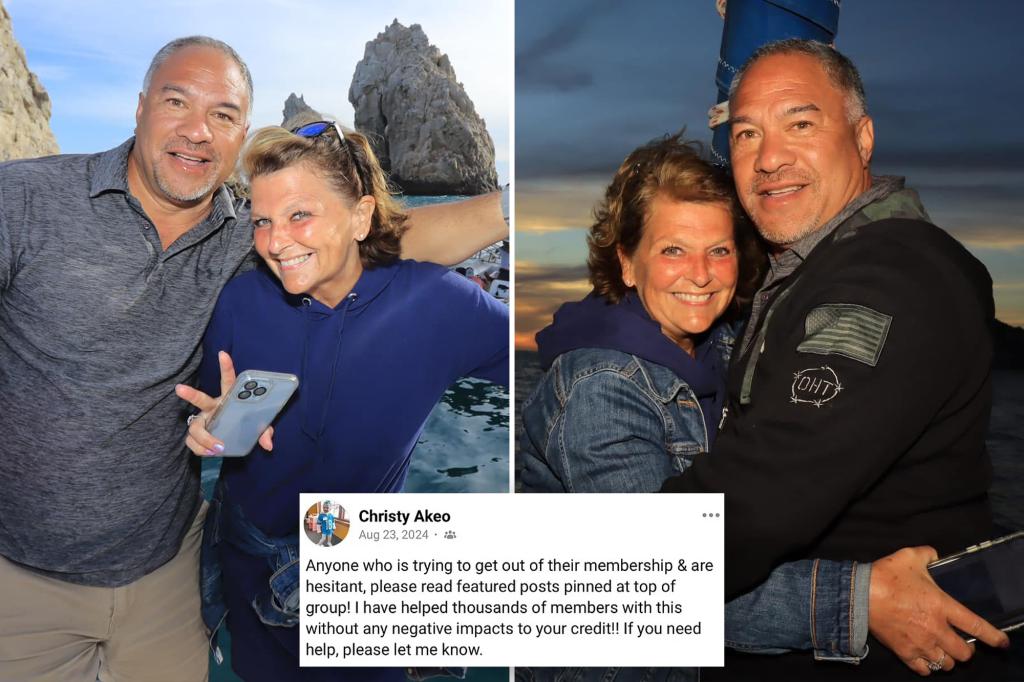Michigan Couple’s Timeshare Dispute: Resort Alleges Fraudulent Encouragement
A Michigan couple has recently found themselves entangled in a complex and contentious timeshare dispute that has raised eyebrows across the vacation ownership industry. The couple, who had entered into a timeshare agreement with a resort in Mexico, now faces serious allegations from the resort management accusing them of fraudulent behavior towards other guests. This situation not only highlights the personal struggles of the couple but also brings to light critical issues regarding the integrity of timeshare agreements and the lengths resorts may go to protect their interests.
The Background of the Dispute
Timeshare ownership has long been a popular option for vacationers looking to secure a getaway spot year after year. However, the business model is not without its controversies. In this particular case, the Michigan couple, who preferred to remain anonymous, purchased a timeshare with high hopes of enjoying their vacations without the hassle of finding accommodations each year. Unfortunately, their experience quickly took a turn for the worse.
According to the resort, the couple allegedly encouraged fellow guests to voice complaints about the quality and management of the resort, which the management claims is an act of defamation designed to undermine the resort’s reputation. The couple has vehemently denied these allegations, asserting that they merely shared their personal experiences and frustrations with the service provided.
Understanding Timeshare Agreements
To fully grasp the implications of this dispute, it’s essential to understand what a timeshare agreement entails. Generally, a timeshare allows individuals to purchase a share of a property, typically a vacation resort, granting them the right to use it for a specified period each year. These contracts often come with various terms and conditions that can be complex and difficult to navigate, especially for first-time buyers.
- Ownership Structure: Timeshares can be structured as deeded ownership (where the buyer owns a fraction of the property) or as a right-to-use agreement (where the buyer has the right to use the property for a certain number of years).
- Maintenance Fees: Owners are usually responsible for paying annual maintenance fees, which can increase over time and become a point of contention.
- Resale Challenges: Reselling a timeshare can be challenging, often leading owners to feel trapped in their agreements.
The combination of these factors can lead to misunderstandings and disputes, particularly when expectations do not align with reality.
Resort’s Perspective: Protecting Their Interests
From the resort’s perspective, the allegations of fraudulent encouragement may stem from a broader concern about reputation management. In an industry that relies heavily on customer satisfaction and word-of-mouth, negative feedback from current owners can have significant consequences. Resorts often invest substantial resources in marketing and guest relations, and any perceived threat to their brand can prompt defensive measures.
In response to the couple’s alleged actions, the resort has taken steps to protect its interests, which may include:
- Legal Action: The resort may pursue legal recourse to address what it perceives as defamation or other harmful actions.
- Public Relations Strategies: To manage the fallout, resorts often engage in PR campaigns to improve their image and address customer concerns.
- Internal Investigations: The resort may conduct internal investigations to determine the validity of the claims and the actions of the couple.
The Couple’s Response and Legal Implications
Facing serious allegations, the couple has sought legal advice to navigate this precarious situation. They argue that their comments were based on genuine experiences and should be protected under free speech rights. This raises significant questions about the balance between consumer rights and the rights of businesses to protect their reputation.
Legal experts suggest that this case may hinge on several factors:
- Evidence of Fraud: The resort must provide substantial evidence that the couple’s actions constituted fraud or defamation.
- Intention: Determining whether the couple intended to harm the resort’s reputation or simply expressed their dissatisfaction will be crucial.
- Public Sentiment: The couple may garner public support, which can influence the perception of the case and its outcomes.
Broader Implications for the Timeshare Industry
This dispute between the Michigan couple and the resort is not just an isolated incident; it reflects broader trends and challenges facing the timeshare industry. As more consumers become aware of their rights and the potential pitfalls of timeshare agreements, they may be more inclined to speak out when they feel wronged.
Some implications for the industry include:
- Increased Scrutiny: Consumers are likely to scrutinize timeshare agreements more closely, leading to potential shifts in how resorts market their products.
- Legal Precedents: Cases like this can set legal precedents that affect how resorts handle complaints and disputes in the future.
- Consumer Education: There may be a growing need for education around timeshare ownership, helping potential buyers make informed decisions.
Conclusion: Navigating the Future of Timeshare Ownership
The Michigan couple’s timeshare dispute serves as a reminder of the complexities involved in vacation ownership. As they navigate the legal intricacies of their situation, it highlights the importance of transparency and fair practices within the timeshare industry. For potential buyers, understanding the risks and benefits of timeshare ownership is crucial, while resorts must strive to maintain integrity and address customer concerns proactively.
Ultimately, this case could lead to a more informed and empowered consumer base, one that demands accountability and quality from the timeshare industry. As both parties work towards resolution, the outcome may influence future interactions between timeshare owners and resorts, shaping the landscape of vacation ownership for years to come.
See more BBC Travel World


